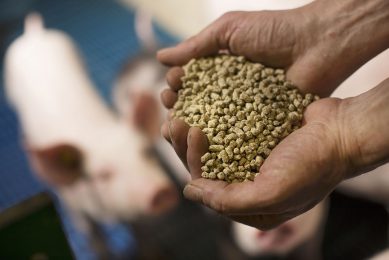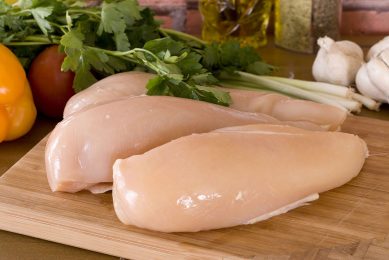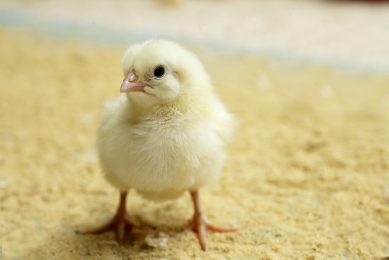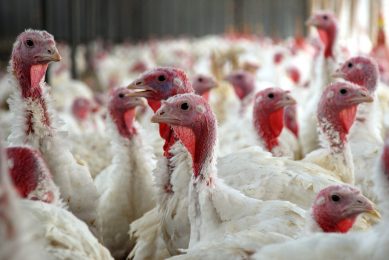A powerful natural antioxidant

Highly productive animals require a balanced nutritional diet to stay healthy and perform maximally. Carefully selected plant-based polyphenols, such as those found in the product, Vitanox, contribute to optimal technical and financial results by supporting animals in maintaining the balance between intracellular oxidation and antioxidant capacity.
With the recent declaration of force majeure by BASF, a partial replacement of vitamin E by Vitanox not only offers a cost-efficient alternative, synergistic effects also positively affect animal health and productivity. Both aspects lead to a worldwide implementation of the Vitanox concept in animal feed. Besides partially replacing vitamin E, the additive can be added on top of the diet for extra support.
Oxidative balance
Free radicals or Reactive Oxygen Species (ROS) are products formed during metabolic processes in animal body cells. Being highly reactive, these components might induce oxidation of intra- and extracellular molecules directly affecting cell viability and function.
In order to avoid negative effects, cells contain naturally present antioxidant mechanisms. In an ideal situation, a balance between oxidation and antioxidant mechanisms is established safeguarding cell integrity and health. In highly productive animals or during stressful periods however, the production of free radicals might exceed the natural ability of the body to detoxify ROS resulting in oxidative stress.
Gut health
The gastro-intestinal tract (GIT) is typically heavily impacted by oxidative stress. As excessive free radicals are capable of oxidising fundamental cell components (proteins, DNA, lipids), intestinal cells either go in apoptosis resulting in lower absorption capacity (shorter villi) or don’t function properly. Regarding the latter, suboptimal functioning of the GIT due to free radicals is perfectly demonstrated by a compromised intestinal barrier function (Figure 1).
Free radicals give a lower expression of tight junction proteins resulting in increased intestinal permeability and allowing pathogens to enter the animal body. In the end, improper functioning of the GIT due to an oxidative imbalance results in metabolic disorders, inefficient use of nutrients and increased susceptibility for diseases.
Feed antioxidants
Antioxidants are an important defence mechanism against oxidative stress as they are able to neutralise harmful ROS. Besides naturally present antioxidant mechanisms in the body, components with antioxidant capacity (e.g. vitamin E) are commonly provided via feed to fulfil a wide range of physiological processes.
A dietary supply of plant extracts rich in polyphenols, such as Vitanox, is a useful strategy to optimise the oxidative balance, either by fulfilling and replacing the antioxidant role of vitamin E or by providing additional protection against oxidative stress.
Scientific selection
Nuscience performed a thorough screening of plant polyphenols in the development of a strong antioxidant product. In contrast to simple in vitro tests, selection of the best components was done using biological meaningful tests, i.e. evaluating the effectiveness on epithelial cells.
The resulting product, Vitanox, not only protects intestinal cells against intracellular oxidation, it also preserves intestinal integrity with a similar effectiveness as vitamin E (Figure 2).
Extra support
In periods of excessive oxidative stress it is advised to add the product on top of the diet. Oxidative stress typically occurs during stressful situations such as weaning, farrowing/calving or at high temperatures.
However, as we demand the animals to perform at the top of their genetic potential, oxidative stress might occur during ‘normal’ growth conditions as well. Supplementation of the product supports the animal to cope with all kind of environmental stressors during its highly productive life.
Replacing vitamin E (partially)
The optimal antioxidant capacity of Vitanox enables feed manufactures to partly replace vitamin E levels and optimise production costs without jeopardising animal health and performance. Trials have shown that the product can perfectly fulfil the antioxidant function of vitamin E resulting in even better technical results.
For more information contact Kevin Vanneste, Product manager, Nuscience






